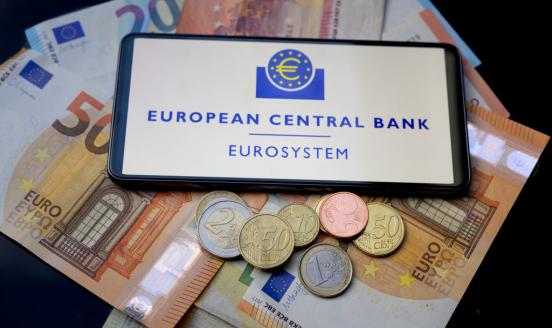Save markets to save the single market
It’s time for the EU to make quick and indispensable progress in forming a capital markets union.
Necessary though it was, the temporary relaxation of state aid rules in the EU has brought grave unintended consequences. Through indiscriminate support, the EU is rapidly moving from an even playing field that promotes the “survival of the fittest” to a situation where only those with the “richest parents” survive.
The EU economic system will come out battered and unbalanced. Countries in the south will lose a substantial part of their production fibre as they lack the means to save those in need. But indiscriminate help in the richer north will also delay the natural sorting between productive and unproductive firms. As companies slip into liquidity problems, they risk predatory takeovers below their market’s worth from EU and non-EU firms rushing to exploit market distress.
The EU needs to reverse this process and needs to think about how to safeguard all markets. We see reasons for rethinking state-aid rules and making some long needed progress with creating capital markets.
Clearly, some form of state-aid rules must be reinstated as quickly as possible to preserve the integrity of the single market. However, for as long as state-aid rules are not in operation, the EU must rethink a strategy for the future of its industry.
For all its faults, the current relaxation of such rules offers a unique opportunity to rethink how the rules must be adapted to a new global order. State-aid rules have up till now constrained the EU from defending itself against rising global structural imbalances. The new but crucial objective should be the notion of economic sovereignty. Decide which industries should be promoted as necessary for sustaining economic independence and protect the EU from unfair practices elsewhere, without however succumbing to protectionism.
In the meantime, national “rescue” operations cannot be indiscriminate but have to be based on balance sheet information before a cut-off date.
Productive firms will be asked to drive the recovery, so they need to be ready to go. They need to be given liquidity, preferably in the form of grants not loans, to prevent the negative future consequences of accumulating debt.
Firms with very precarious balance sheets, on the contrary, should be allowed to fail. Their employees should receive support through unemployment benefits and help with employment transition. This would be the best pursuit of societal purposes.
The real problem however rests with a third category of firms, the largest of all: those who are neither clearly productive nor clearly failing. The difficulty in deciding what to do for them was the real reason behind the policy of indiscriminate support.
Markets are the only ones capable of sifting through the risks the EU currently faces and identify who is the fittest to survive. The best the EU can do is provide the legal certainty necessary for this to happen.
A tempting response for some is to call for state participation in the form of equity. If taxpayers are to take a share in the losses, the argument goes, they must also have a share in the profits.
This argument is seductive, but it puts the role of the state on a par with the markets. The state can support those that are clearly productive, in its role as a buffer against truly unforeseen circumstances. But it is not well placed to identify those that are worth saving. Its involvement in this third, problematic category, needs to be limited, therefore, to encouraging others to do it.
Should it be banks? Partially yes, but mostly no because banks are constrained in how much risk to take and they are not meant to have “skin in the game”. But if not banks, then who? The answer is capital markets. Unfortunately, the EU is very poorly prepared in this respect.
It’s time for the EU to make quick and indispensable progress in forming a capital markets union. And it can do it, as it did with Banking Union during the previous financial crisis. This could take the shape of a “28th regime”: a separate legal jurisdiction, created from scratch and separate from any national jurisdiction. By design, it should encourage more private capital involvement, domestically but also across member states.
Markets are the only ones capable of sifting through the risks the EU currently faces and identify who is the fittest to survive. The best the EU can do is provide the legal certainty necessary for this to happen.



